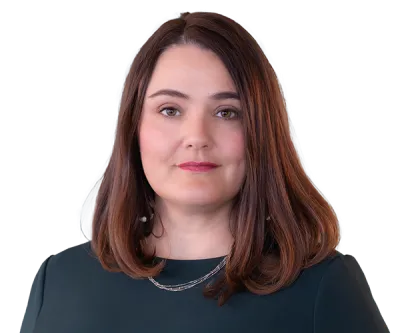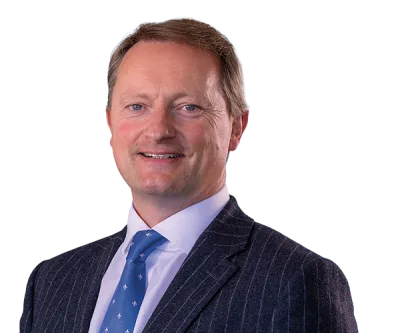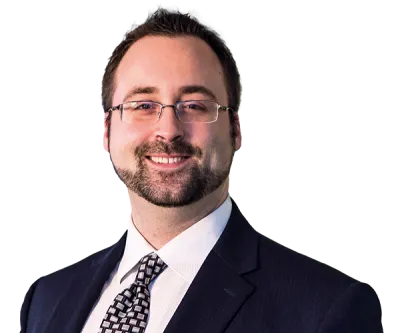Butler-Sloss: a most charitable interpretation
May a trustee of a charitable trust (or any trust, for that matter) make investments principally for ethical reasons; rather than seeking the highest possible financial return?
This is a question that arises with some regularity in trust administration, and one to which the English Court has offered a very welcome answer in the recent case of Sarah Butler-Sloss & Others v Charity Commission [2022] EWHC 974. This case has potentially wide-ranging implications and in this article we will focus on those relevant to trustees of Guernsey-law trusts.
By way of brief precis of the facts: the trustees of two charitable trusts with environmental aims, holding between them some £66 million in assets, wished to structure their investment policy so as to accord with the principles laid out in the Paris Climate Agreement. Doing so would result in the elimination of roughly half of the investible universe – meaning that of all investments publicly available for subscription, roughly half would be ruled out by the proposed investment policy.
As a matter of English law it was not clear that investing based on such an ethical view, rather than for the best possible return, was in keeping with a trustee’s duties.
Accordingly, the trustees in the present case sought, amongst other relief, the blessing of the English Court of the adoption of the proposed investment policy (a so-called "Public Trustee v Cooper Type II" application). The application was opposed by the English Commissioner for Charities and His Majesty's Attorney General.
The crux of the legal argument (insofar as it does not relate to English statute) was the effect of the so-called Bishop of Oxford case, which has been understood to stand for the proposition that a trustee had to invest for the best possible risk-adjusted return without reference to ethical considerations, subject to three exceptions.
The exceptions were those of
- direct conflict – being cases where an investment so directly contradicted the aims of the charity as to be intolerable (the case gives the example of Quakers investing in armaments);
- indirect conflict, being cases where the investment was of such a nature that it might alienate potential donors to the charity, or make potential objects of the charity less willing to accept its help;
- "other cases" which could be justified by the trustees.
However, the Bishop of Oxford case made clear that "Trustees must not use property held by them for investment purposes as a means of making moral statements at the expense of the charity" and so the understanding to date has been that such other cases must not financially disadvantage the charity.
Butler-Sloss conclusion
In considering the Bishop of Oxford case, the Court in Butler-Sloss ultimately concluded that there was no hard and fast rule requiring that a trustee must invest for the best financial return, subject to certain limited exceptions. Rather, in all cases, a trustee entrusted with investment powers has a duty to properly consider the exercise of those powers – which will in the case of a charitable trust invariably require the trustee to balance the need for financial return against the ethical aims of the charity. In the words of the Court, "Essentially, trustees are required to act honestly, reasonably (with all due care and skill) and responsibly in formulating an appropriate investment policy that is in the best interest of the charity and its purposes… if that balancing exercise is properly done and a reasonable and proportionate investment policy is thereby adopted, the trustees have complied with their legal duties in such respect and cannot be criticised even if the court or other trustees might have come to a different conclusion." [1]
Savvy readers will recognise that the Court here is essentially saying the decision of whether or not to make so-called "ethical investments" is a decision to be made in the normal course by a trustee and subject to the normal duties, e.g.:
- to act responsibly and in good faith;
- to take only relevant matters into account and to ignore irrelevant matters;
- to act impartially; and
- not to act for an ulterior purpose.
This is very welcome news indeed, and should serve to reassure trustees that investments decisions, despite their inherent complexity, are subject to the same rules as any other trustee decision. Courts will not lightly interfere with a properly reasoned trustee decision, and careful reasoning is a very strong protection against complaints from unhappy beneficiaries (or even, in this case, government officials).
Other procedural points
There are some further procedural points that emerge from the Butler-Sloss decision that are worth mentioning.
First, the trustees consulted with expert firms of investment managers and advisors when developing their proposed investment policy. These expert advisors were able to show that the proposed policy, if adopted, would have returns in line with industry benchmarks for trusts of a similar size and nature. This was crucial factual evidence showing that the proposed policy, despite markedly restricting the pool of available investments, would do no actual financial harm to the trusts.
This is an important reminder that in considering all relevant considerations, a trustee should be careful to take advice from appropriately qualified experts (and indeed in Guernsey a trustee is entitled to take such advice at the expense of the trust fund by virtue of Section 32(1) of the Trusts (Guernsey) Law, 2007). The financial impact of any proposed investment policy should be well understood by a trustee before it is adopted. Moreover, it is very important that once an investment policy is in place that a trustee keeps performance under regular review; and actively engages with the investment managers or advisers on their reporting. Losses should be carefully queried and kept under review; and the trustee should be prepared to adjust a policy as circumstances require.
Second, recall that the trustees in the Butler-Sloss case sought to have their decision to adopt the proposed investment policy "blessed". For context, the Courts of both England and Guernsey have power to review a proposed trustee decision and determine whether the decision, if implemented, complies with all of the trustee's duties. An affirmative decision serves to immunize the trustee from future suit on the grounds that the blessed decision was negligent or in breach of trust.
In order to obtain a blessing, a trustee has to have actually reached a decision. One of the objections made in the Butler-Sloss case was that the trustees had not actually made a decision that could be blessed – there was no minute or other document prepared by the trustees that could be pointed to as containing a decision of the trustees to adopt the proposed policy. Whilst the Court in Butler-Sloss ultimately dispensed with that objection, it is an important reminder to trustees seeking Court relief to ensure that their evidentiary record is in the best possible shape before going to Court – including by ensuring that there is a clear and concise minute of the trustee recording the decision it seeks to have blessed and the trustee's reasons for arriving at that decision.
Thus, if you are a professional trustee considering adopting an investment policy (whether or not it contains ethical investments) you would be well served to:
- consult with appropriate experts;
- carefully document your reasoning for adopting the proposed policy;
- keep the policy and overall investment performance under review; and
- take necessary action to adjust the policy or investments if circumstances call for it.
The lawyers at Carey Olsen are well versed in these matters and we would be delighted to assist you with any questions you may have about trustee investments or minute-crafting.
[1] at para 78.




